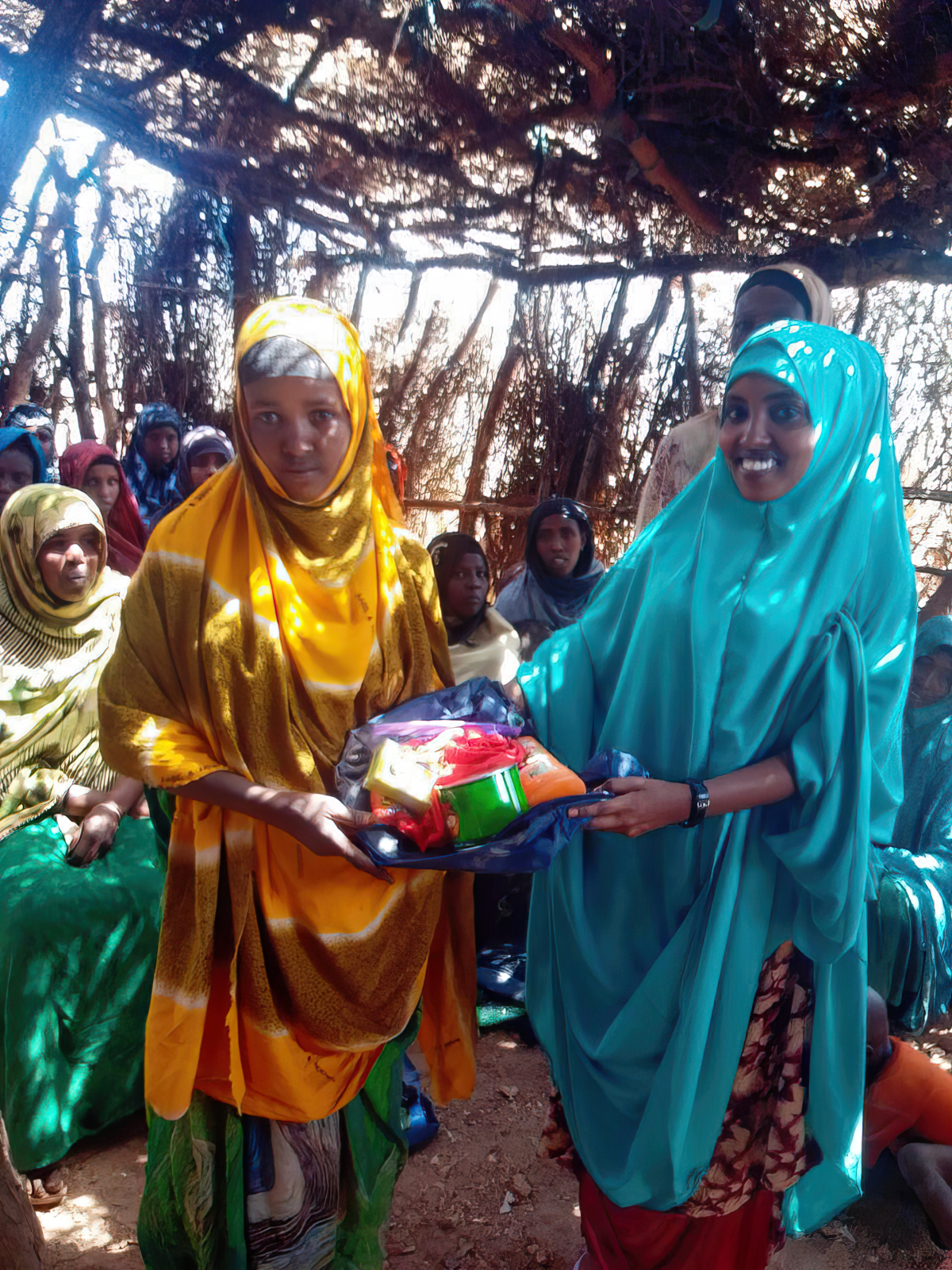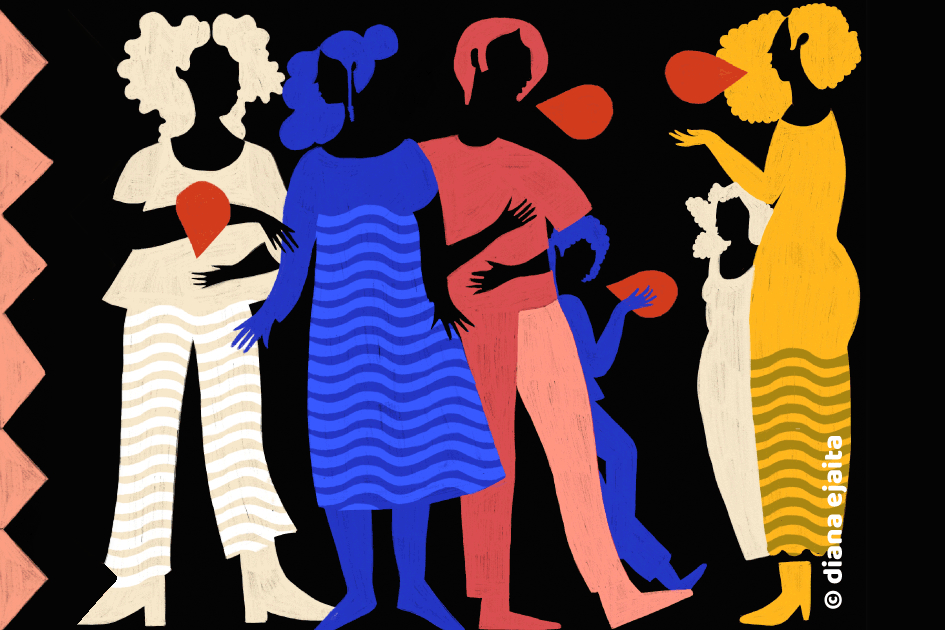Menstruation - even here in Germany, this topic is still tainted with shame. But for millions of women in underprivileged regions, menstruation is associated with even greater problems: After all, how can school attendance take place if there are no toilets, no running water and soap, and no sanitary pads or other menstrual materials are available? And how can body hygiene be ensured if one has not been educated about the processes in one's own body or does not dare to talk about it because the topic is stigmatised? Often, especially for girls, the onset of menstruation means a severe restriction in daily life or even social exclusion. And the period is still a health risk for countless women and girls. Infections can occur, for example, if insufficiently cleaned cloth is used due to a lack of hygiene products. The discharge of menstrual blood is also often a problem for girls and women who have been circumcised.
Halimo Abdi, 28, mother of five children: "I got my dignity back".
|
arche noVa wants to change this. In Ethiopia, for example, we work together with the local partner organisation OWDA to provide education on menstrual hygiene and distribute hygiene kits to girls and women who have had to leave their home villages due to various crisis situations within the country and are now most in need of protection. Thanks to these activities, we have already been able to reach thousands of IDPs in need and help them achieve better health, social inclusion and thus more dignity and self-determination. Halimo Abdi from Ethiopia is one of the women arche noVa has already been able to reach. The 28-year-old mother of five children was displaced in the ethnic conflict between Oromia and Somali, which has received little international attention.
picture: arche noVa | leftside: Halimo Abdi |
 |
"My family's survival depends on humanitarian aid and government support, I have no other means of generating income," she says. "When the period starts, I have not been able to use anything but my clothes until now, which has challenged me a lot,"
says Halimo Abdi.
But that, she continues, has now changed: "Thanks to the high-quality, free supply of hygiene kits, I have regained my dignity."
Education and hygiene care still important
Even if the projects of arche noVa show success: Thousands of internally displaced people in East Africa are still without adequate hygiene care or have no access to education services. And not only there: Humanitarian disasters are on the rise worldwide, forcing people into difficult living conditions. It is precisely there that girls and women are most vulnerable. So there is still a lot to do. Because one thing is clear to us: a self-determined life in dignity must be possible for every girl and every woman.
Join us in supporting girls and women on all days.













